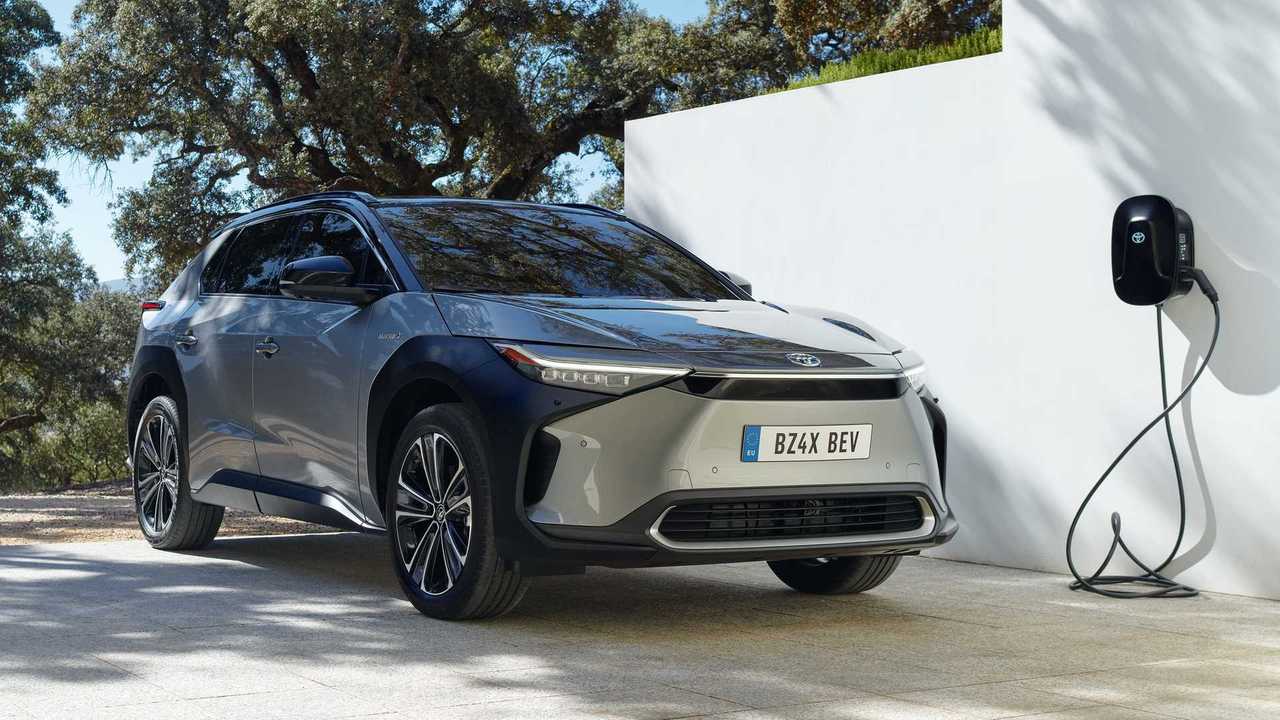Toyota, the world’s largest automaker, is making moves to catch up with the rise of electric vehicles (EVs) by unveiling several new EV concepts at the Japan Mobility Show. Additionally, Toyota executives announced their plans to enter the home charging and energy management business, following in the footsteps of their competitors.
During a roundtable session with journalists, Toyota board member and Executive Vice President Yoichi Miyazaki stated that if the company sells battery EVs, a charging system will be necessary. He mentioned that customers will want a charging system in their homes, and therefore, chargers and storage batteries will become new products for Toyota. Miyazaki emphasized that Toyota aims to step into the global energy ecosystem management business.
Miyazaki’s comments were in response to a question about the potential impact of EVs on Toyota’s global labor force. While EVs require fewer parts to build than internal combustion cars, potentially leading to job downsizing, Miyazaki expressed that the same labor force and supply chain could be utilized to create new products.
The Chief Technology Officer of Toyota, Hiroki Nakajima, further reinforced Miyazaki’s remarks. When asked about bolstering the charging infrastructure, Nakajima highlighted the importance of providing home charging options to customers. He emphasized the need to collaborate with dealers to implement home charging systems.
Although Toyota did not provide specific details about its future charging systems, the company’s plan aligns with other automakers like Tesla and General Motors, which have already released home energy storage products and charging solutions. The ability to send energy from EVs back into the electrical grid or power external devices and homes is seen as a significant advantage of EVs. Toyota has previously partnered with companies like ChargePoint for home charging solutions but has not introduced its own products.
Miyazaki’s acknowledgment of the potential impact on jobs is noteworthy, considering Toyota’s history of avoiding layoffs even during economic downturns. Retraining workers to manufacture different products and equipment may be necessary for such a plan. However, this announcement comes at a time when the American auto industry is facing labor disputes, with workers concerned about the potential loss of manufacturing jobs in an electric vehicle future.
Overall, Toyota’s entry into the home charging and energy management business is seen as a positive step toward meeting customer demand for electric vehicles. While Toyota currently has limited electric offerings, such as the bZ4X crossover, the company plans to introduce ten new battery-powered models by 2026.
Toyota Plans to Enter the Home EV Charging and Energy Management Market
In a move seen as a strategic expansion of its current offerings, Toyota recently announced its plans to venture into the home electric vehicle (EV) charging and energy management market. This bold step by the Japanese automotive giant demonstrates its commitment to sustainability and its determination to play a significant role in the future of mobility.
As the world shifts towards a greener and more sustainable future, the demand for electric vehicles is on the rise. This surge in popularity has led to the recognition that high-quality charging infrastructure needs to be readily available for EV owners. With this understanding, Toyota intends to tap into the home EV charging market by offering advanced charging solutions for residential customers.
By entering this market, Toyota aims to provide an end-to-end solution for electric vehicle owners by not only supplying efficient and reliable EVs but also facilitating their charging needs at home. This move is in line with the company’s vision to create a sustainable society, where renewable energy is prioritized, and EV adoption is encouraged.
Toyota’s expansion into the home EV charging and energy management market comes as no surprise considering the company’s strong reputation in the automotive industry. With a long history of producing reliable and technologically advanced vehicles, Toyota is well positioned to bring its expertise to the charging infrastructure market.
Toyota’s charging infrastructure is expected to leverage its automotive battery technology and expertise to provide efficient and reliable charging solutions. The company plans to optimize charging solutions by integrating them with renewable energy sources, such as solar power. This integration will pave the way for a more sustainable and eco-friendly charging ecosystem.
Moreover, Toyota envisions a comprehensive energy management system that goes beyond just charging EVs. The company plans to develop smart home technologies that will enable customers to effectively manage their energy consumption, reducing waste and further contributing to sustainability. By combining energy generation, storage, and consumption, Toyota aims to provide homeowners with a holistic solution that maximizes efficiency and minimizes environmental impact.
While Toyota’s entrance into the home EV charging and energy management market is certainly exciting, it also reflects the increasingly competitive nature of the industry. With various players already offering EV charging solutions, Toyota faces the challenge of differentiating itself and proving its value proposition to potential customers.
Despite the hurdles, Toyota’s entry into this market brings about various benefits. Firstly, it creates additional options for EV owners, giving them a wider range of charging solutions to choose from. Secondly, Toyota’s renowned reliability and commitment to quality could help instill confidence in potential customers, assuring them of a reliable and long-lasting charging infrastructure. Finally, Toyota’s expertise in battery technology and energy management ensures that their charging solutions are developed with a deep understanding of the EV ecosystem, optimizing performance and user experience.
As Toyota embarks on this new endeavor, it is clear that the company’s vision extends beyond simply producing and selling electric vehicles. By entering the home EV charging and energy management market, Toyota aims to shape the future of transportation by providing a seamless and sustainable experience for electric vehicle owners. It is a step towards a greener and more interconnected world, where vehicles and homes work in harmony to reduce carbon emissions and promote a sustainable way of life.

